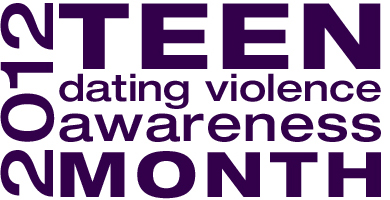 Most of us think of this month as the “love” month or the month to keep up with our new year’s resolutions but what most of us don’t know is that this month is also “National Teen Dating Violence Awareness and Prevention.” In 2010 Congress approved February to be the month the nation unites to bring awareness about this sad reality. It is important to mention that dating violence includes physical, sexual, forced substance use, stalking, and psychological/emotional violence.
Most of us think of this month as the “love” month or the month to keep up with our new year’s resolutions but what most of us don’t know is that this month is also “National Teen Dating Violence Awareness and Prevention.” In 2010 Congress approved February to be the month the nation unites to bring awareness about this sad reality. It is important to mention that dating violence includes physical, sexual, forced substance use, stalking, and psychological/emotional violence.
The Center for Disease Control reports that almost 10% of high school students report being hit, slapped, or physically hurt on purpose by their boyfriend or girlfriend in the course of a year. One in 3 teens who have experienced dating violence, or sexual or physical abuse. Also, about 1 in 5 women and around 1 in 7 men who experienced rape, physical violence, and/or stalking by an intimate partner, first experienced some form of partner violence between 11 and 17 years of age. Concurrently, the statistics are as bad in college relationships.
- 21% of college students report they have experienced dating violence by a current partner and 32% reported they experienced it by a previous partner.
- 13% of college women report that they were forced to have sex by a dating partner.
- 60% of acquaintances rapes on college campuses occur in casual or steady relationships.
- More than 13% report they have been stalked and of these, 42% were stalked by a boyfriend or ex-boyfriend.
Another shocking statistic is that nearly 16 out of 1000 women between the ages 16-24 report domestic violence; this is the highest among all group ages, overall domestic violence happens to 6 out of 1000 women. Nearly 1 in 3 teens
The aftermath for victims of dating violence sometimes results in doing poorly in school, binge drinking, suicide attempts, depression, substance abuse, health complications, and physical fighting. Furthermore, sometimes the victims can carry the violence patterns into future relationships.
If you are currently experiencing some type of dating violence or know someone who is, you can get help by contacting the National Dating Abuse Helpline at 1-866-331-9474, text “loveis” to 77054, or visit: LoveIsRespect.org. There are many more websites that provide help and guidance for parents, friends, and victims of dating violence. If you and your friends are in healthy relationships but still want to help, HopeLine is a program from Verizon Wireless that helps to create awareness of dating violence. In addition, it has a college program, UHopeLine, in which they encourage us, students, to raise awareness of dating and domestic violence. Additionally, it allows us to give back to those who have been affected by donating phones to Verizon Wireless. Phones can be dropped off at your local Verizon Wireless store, or sent through the mail (details here) to be restored and given to victims of domestic violence. If you want to join the movement you can visit HopeLine here.
 Jacqueline Gamboa Varela is a student at the University of Texas at El Paso majoring in chemistry. She serves as the NSCS chapter president and is member of the National Leadership Council. She works in a research laboratory and her hobbies include playing the violin and watching indie movies.
Jacqueline Gamboa Varela is a student at the University of Texas at El Paso majoring in chemistry. She serves as the NSCS chapter president and is member of the National Leadership Council. She works in a research laboratory and her hobbies include playing the violin and watching indie movies.
